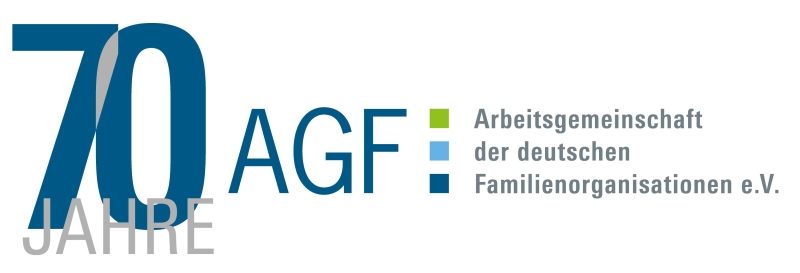[18. 9. 2018] On the occasion of the “Gute-Kita-Gesetz” (Good Childcare Act), which is to be passed by the Federal Cabinet tomorrow, the organisations within the Association of German Family Organisations regret that the government is missing its targets with its draft bill.
“With good intentions, the Minister of Family Affairs has once set out to improve the provision of day care for children throughout Germany. This is urgently needed so that child day care can really meet the demands regarding early childhood education. However, the present draft of a “Good Childcare Act” shows that the federal government does not have a clear goal in mind,” says the chair of the AGF, Stefan Becker.
The family organisations are missing several elements in the draft that have been under discussion in recent months. Especially in view of the different framework conditions in the federal states, it is necessary to introduce binding, nationwide uniform and scientifically based standards as a common goal. This is a demand that is supported by 34 organisations, associations, childcare providers and trade unions. With the government’s proposal, however, it would remain completely unclear whether the current regulations can really lead to a reduction of the considerable differences between the respective federal states.
A better control by the federal government and higher financial resources are needed. Several studies, as well as the results of their own work, which the natinal level and the Länder jointly achieved last year, show a significantly higher overall financial need. A current study by the Bertelsmann Foundation assumes 6.7 billion euros/year in addition to the planned federal funding for the national level, the Länder and the municipalities. In addition, the draft law stipulates that the funding will expire in 2022. “This is an invitation to the federal states to fall into the usual ‘projectitis’ without achieving a permanent increase in quality. Creating and maintaining really good day care facilities is a permanent task and not one that will be completed by the end of 2022,” emphasises Stefan Becker. From the point of view of the family organisations, it is absolutely necessary that the federal government contributes at least five billion euros per year on a permanent basis.
In this context, the family associations also clearly position themselves in favour of giving priority to improving the quality of day-care centres over the general abolition of day-care centre fees. However, since no child should be excluded from attending a day-care centre for financial reasons, the family organisations welcome the planned improvement of the social scaling of parental contributions.
Finally, they are very critical of the fact that the funding is to be provided through a change in the Länder fiscal equalisation system. In this way, the federal government is depriving itself of any possibility to act in a controlling way – even the individual target agreements with the federal states would not change anything. Especially since the law could not come into force until all the federal states had signed such a target agreement.
“All in all,” concludes Stefan Becker, “the goal of the law is correct, but it is not sufficiant to give the federal states a pot with too little money and a so-called “toolbox” without being able to even slightly steer what happens with the funds in the end.
